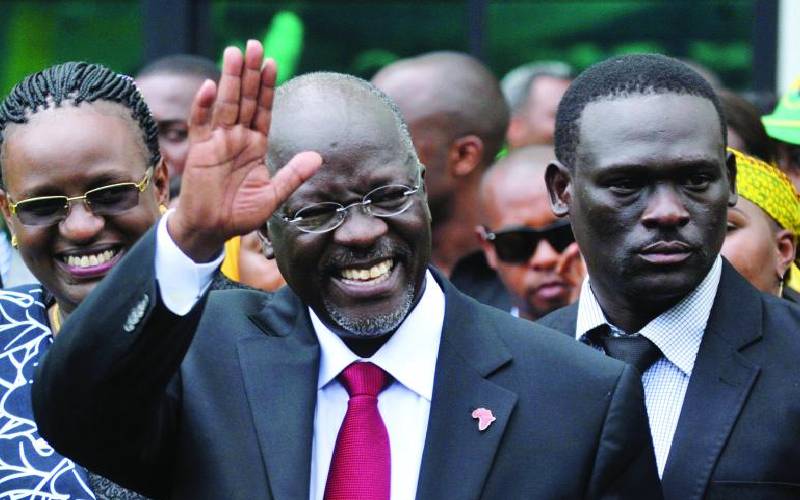×
The Standard e-Paper
Kenya’s Boldest Voice

It is emerging that the late John Magufuli (pictured) — a man routinely lionised by Tanzanians — created obvious assets to himself: A familiar name, a charming personality and immense political populism across Tanzania. His widely admired integrity, engaging and imperturbable geniality, prodigious memory and a unique administrative style summed up the personal qualities of the man many Tanzanians hoped would transform their country.